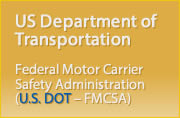
Forms
- If you are out of work - take a withdrawal (PDF) Fill out this form and return it to Local 813. The cost of requesting a withdrawal card is only 50 cents.
- If you move - please send us your new address
Visit Related Organizations
City's Commercial Sanitation Industry Reform Plan Follows Release of New Study

New York, NY -- The de Blasio administration has a plan in the works to combat a host of problems in the commercial sanitation industry that were detailed in a report released on Wednesday, April 17.
The report, commissioned by the DSNY and the Business Integrity Commission, looks at the private carting industry, which is responsible for collecting more than three million tons of waste and recyclables each year from the City's commercial establishments.
The plan would establish commercial waste collection zones, and, through a competitive bidding process, would assign one company to each zone to provide waste disposal. Currently, about ninety private companies follow haphazard routes across the City to collect trash. According to the New York Lawyers for the Public Interest, one of the groups that has advocated for reform, the zones, "will improve air quality, health and public safety of all New Yorkers."
The City says the zoning would alleviate problems caused by commercial trucks that travel the City for millions of miles annually, causing pollution, excessive traffic, and often becoming involved in crashes due to safety violations that are ignored by the private carting companies.
The study found that the creation of the zones could reduce the associated traffic by 49 to 68 percent, as wells as bring down greenhouse gas emissions by 42 to 64 percent.
Associated worker safety would also be impacted, as a high fatality rate is currently seen as a result of the frequent crashes, as detailed in the report. It also cited the fact that employees say that they are pushed by their supervisors to complete their work in a shorter period of time, jeopardizing their safety, and that many companies lack standardized safety training. Workers are also said to have been punished for reporting safety incidents by being given the most difficult routes.
Sean Campbell, President of Teamsters Local 813, which represents private sanitation workers in New York City, said, "I hope this will raise standards across the board, especially wages and safety. I believe it will put carters' wage standards on an even playing field. Also, for far too long, [these companies] have operated equipment that is unsafe. We have been working on this behind the scenes for about two years. Now, there will be a more watchful zone, with tighter inspections."
Harry Nespoli, President of Teamsters Local 831, the Uniformed Sanitationmen's Association, said, "I approve of the plan. All workers deserve a safe environment and fair wages. The trucks should be updated on a regular basis. Let's hope we can help the workers have better conditions. They also have to go out and bring home decent paychecks. [This plan] will help improve the air quality in New York City, which will help the public too."
Sanitation Commissioner Kathryn Garcia and other de Blasio Administration officials set the time for the implementation period of the new zone program at two years, during which the DSNY and BIC will work with businesses, the private carting industry, and environmental justice advocates to develop the plan.
The Private Carting Study can be viewed here: http://www1.nyc.gov/assets/dsny/about/inside-dsny/private-carting.shtml.




